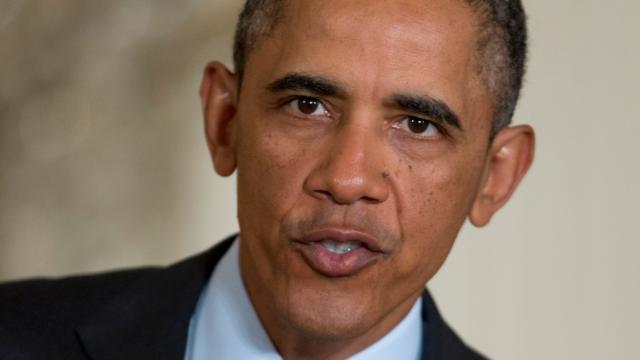In a major speech this morning, US President Obama scaled back the NSA’s surveillance operations and redefines how we collect intelligence overseas. In brief, he ordered the end of the bulk telephony metadata program (in its current from) and spying on foreign leaders. Beyond that though, the future remains murky.
Truth be told, Obama did announce several reforms, some of which fell in line with the recommendations made by the advisory committee he set up for reforming America’s intelligence practices. The main one means that the intelligence community must get court approval before tapping into its vast database of telephone data. He also announced:
- a new presidential directive for signal intelligence
- a set of reforms to programs and procedures to provide greater transparency from the intelligence community
- new reforms to restrict amount of information collected on foreign targets overseas under Section 702
- a policy change to make national security letters secret for only a limited period of time in order to increase transparency
- an end to Section 215 bulk collection of telephone metadata program in favour of “a new mechanism”
All of that sounds pretty vague because it is. The president stops short of announcing specifically how intelligence-gathering will be conducted in the future and instead continues to dwell on the idea that his administration will increase transparency, make small course corrections, and set up an outside committee to protect privacy. (He did say that a senior White House official will be appointed to implement privacy safeguards.)
Other recommendations from the advisory committee, like seeking court approval for national security letters, were ignored. Obama also failed to mention anything about the NSA’s supposed creation of “back doors” and ability to break encryption. He said nothing of the NSA’s reported intrusion into the servers of internet companies or the advisory’s committee’s recommendation that that agency “not in any way subvert, undermine, weaken or make vulnerable” commercial software.
The mystery of what NSA surveillance will look like in the future lingers. We don’t know, for instance, what this “new mechanism” for bulk collection of data will look like. Bulk collection of data will continue, however, albeit in a slightly limited form. The intelligence community, for instance, will only be able to pursue phone calls that are two steps removed from a number associated with terrorists instead of the current limit of three steps. Nevertheless, Obama made it clear that whatever replaces Section 215 could be pretty similar to Section 215.
Obama did concede that we would have to work to restore confidence in the United States overseas. And so in his presidential directive, Obama reiterated that the US “only uses signals intelligence for legitimate national security purposes” and not “to suppress criticism or dissent” or “to disadvantage people on the basis of their ethnicity, race, gender, sexual orientation, or religious beliefs.” He added that the US does “not collect intelligence to provide a competitive advantage to U.S. companies, or US commercial sectors.” So no more spying an Angela Merkel or any other foreign leaders.
All that said, the president worked hard to defend the nation’s intelligence-gathering activities. Obama emphasised that the controversy surrounding surveillance programs at places like the NSA probably have more to do with the gap between technological advances and policies than they do with breaking the law or violating American’s civil liberties. He maintained that the intelligence community is full of patriotic Americans doing the right thing. You have to wonder how many Americans who’ve been spied on by the NSA actually feel that way.
This isn’t the end of the road, when it comes to NSA reform, though. From here, it’s up to the courts and Congress to add detail to Obama’s broadly worded announcements. It’s also up to the people to keep fighting for their right not to be spied on.
Read the full text of Obama’s speech here.
Picture: AP
